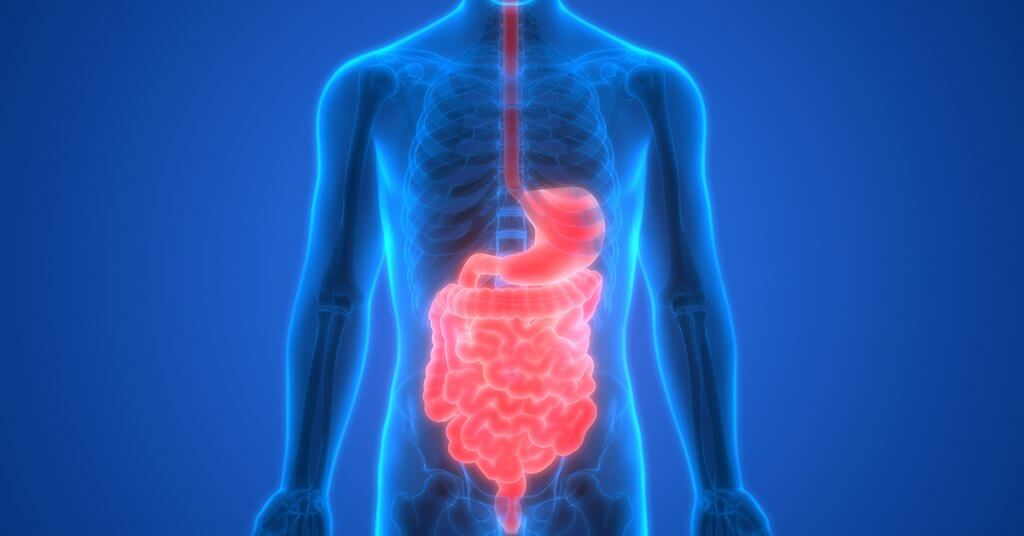15 Foods to Improve Gut Health

Incorporating foods that contain probiotics or prebiotics can not only help improve your overall gut health but help alleviate undesirable symptoms such as gas, bloating, constipation and diarrhea.
In fact, the American College of Gastroenterology estimates that between 10 and 15% of the US population suffers from IBS, and eating gut-healthy foods can be an effective way to manage symptoms. If you’re not sure where to start, here are 15 foods to incorporate into your diet to improve gut health:
Probiotics
Fermented foods are often rich in probiotics. The fermentation process involves sugar being changed into an organic acid or alcohol, which contains bacteria. Foods that contain bacteria like lactobacilli are good for digestive health. These foods include:
1. Yogurt: Yogurt is one of the most well known probiotic-rich foods and it’s very accessible. Make sure you check labels on yogurt for the number of live cultures and avoid varieties with added sugar or artificial flavors.
2. Sauerkraut: This food from Germany is made of fermented cabbage and is often used as a condiment. It is easy to find in stores, but it’s better to choose varieties that are labeled “freshly fermented” or make your own.
3. Kimchi: Kimchi is a lot like sauerkraut, but it has more of a spicy kick. This Korean dish is made with fermented cabbage and a blend of spices.
4. Tempeh: Tempeh is a fermented soy food that has become popular as a meat substitute in sandwiches and salads. It should be cooked before eating and may need a good amount of added flavor and seasoning, as it can be bland. Stick to organic soy products.
5. Kefir: Kefir is similar in some ways to yogurt, but it is more tart and has a liquid consistency. It is one of the most probiotic-rich foods you can find. Dairy-free versions using nut milk or coconut water still have plenty of probiotics are available in some stores. Steer clear of any variety of kefir with flavors that add a lot of sugar.
6. Miso: This fermented soybean paste is popular in Japanese cuisine and has gained popularity in the US as well. It is commonly used in soups, but it can also be used in salad dressing or to make homemade mustard. As with tempeh, it is recommended to look for organic miso because it is a soy product.
7. Pickles: Whether it’s a traditional pickle made from cucumber or another vegetable soaked in brine, pickles gain probiotics as they ferment. Pickled vegetables should only make up a small portion of the vegetables you eat because they can be high in salt.
Prebiotics
Foods that are high in fiber can also improve gut health because they are good sources of prebiotics. Prebiotics are foods that feed the good microflora in the gut and encourage them to multiply. Whole fruits, vegetables, and whole grains are often good sources of prebiotics.
8. Whole Grains: Whole grains are good sources of insoluble fiber. Insoluble fiber is not only a good source of prebiotics, but it is also good at keeping you regular and having a kind of cleansing effect on the digestive tract.
9. Legumes: Legumes and beans are a good source of soluble fiber that is both prebiotic and can help lower blood sugar and LDL cholesterol.
10. Broccoli: Broccoli and other vegetables in the cruciferous family are great for keeping your digestive tract working right. They are a fantastic source of fiber and other nutrients. If you don’t like the taste of broccoli, you can try related vegetables like cauliflower, cabbage, and Brussels sprouts.
11. Bananas: Along with prebiotic fiber, bananas have high potassium and magnesium content, which can reduce bloating and inflammation.
12. Apples: Green apples have lots of good prebiotic fiber and are very easy to find, making them a great option for improving gut health.
13. Leafy Greens: Kale, collards, dandelion greens, spinach, and Swiss chard can all be incorporated into your diet by putting them in salads, sautéed with spices, or added to soups.
14. Jerusalem Artichoke: Not as common as other vegetables and fruits, but this tuber has lots of good prebiotic fiber. Just be careful and ease into eating them as they can cause excess gas.
15. Garlic: This popular food used for flavor is a superfood. It is a great source of prebiotics, so use it in recipes when you can. Raw garlic is even more beneficial than cooked.
Make an Appointment
At Birmingham Gastroenterology Associates, we are committed to providing comprehensive care for patients with diseases and disorders of the digestive tract. This includes making recommendations to patients to improve their gut health. If you have questions or concerns about your gut health, call us at (205) 271-8000 to make an appointment at one of our convenient locations in the Birmingham area.

